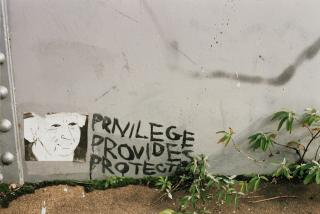There Is More Love Somewhere
Last summer at General Assembly, I walked out of the sanctuary we had made from the convention center space. As tired as I was, I returned more and more to my deeply introverted default of self, and I passed a woman who had to stop to talk with me.
Many religious professionals who have led a morning worship service know this is where the work begins.
She walked up to me and said, “Doctor Rideout!” Because she had enough grace to remind me of my title, she gave me the opportunity to resume my church face and posture. She held my hands as if we had known each other for the longest time. She looked into eyes and she said, “You know what? I always sing that song: There is more love right here…. There is more love right here…. I’m gonna keep on ‘cause I found it… There is more love right here…. I don’t understand why it is that we don’t sing that here at GA. We’ve already found a community of love.”
And because she had enough compassion and grace to call me Dr. Rideout, she had given me enough time and opportunity to summon up a bit of stillness from the weary remnants of my churchman’s posture.
She looked into my eyes and spoke and sang to me with her own truth. She asked with genuine curiosity why it is that we don’t all sing the words that she had come to know.
I was compelled to respond to the woman I had just met with, “Thank you for trusting me with that question.” And then I explained to her why I thought it was necessary — particularly with the music of people of color — that we enter and examine these songs with more curiosity than colonization.
I thanked her, and I explained that for those of us who live with the privilege of knowing love, it can be difficult to understand the perspective of one who lives without such a privilege.
I explained that it can be difficult to understand the lived experience of those who have trouble finding the evidence of love in their immediate vicinity; in their church; in their neighborhood; in their city; in their nation; even in their planet.
I thanked her, and I explained that for some who don’t share the privilege of perceiving love “right here,” moving toward that idea of privilege had become a vital practice of Black faith.
I offered that if we, as a spiritual community of Unitarian Universalists, populated by well-meaning people, are to mean anything to the lives and the deaths of people of color, we must begin by learning — not squelching — the forms of expression that arise from these living perspectives.
And she said, “Thank you. I’ve never heard it expressed that way. I’ve never understood it that way. And I will never sing it that same way again.”
When we inhabit the music, the forms of expression of people who lived their lives along the margins of notice, we must notice that we have entered holy ground, a sacred space of learning; a sacred space of relationship.
| Date added | |
|---|---|
| Tagged as |


